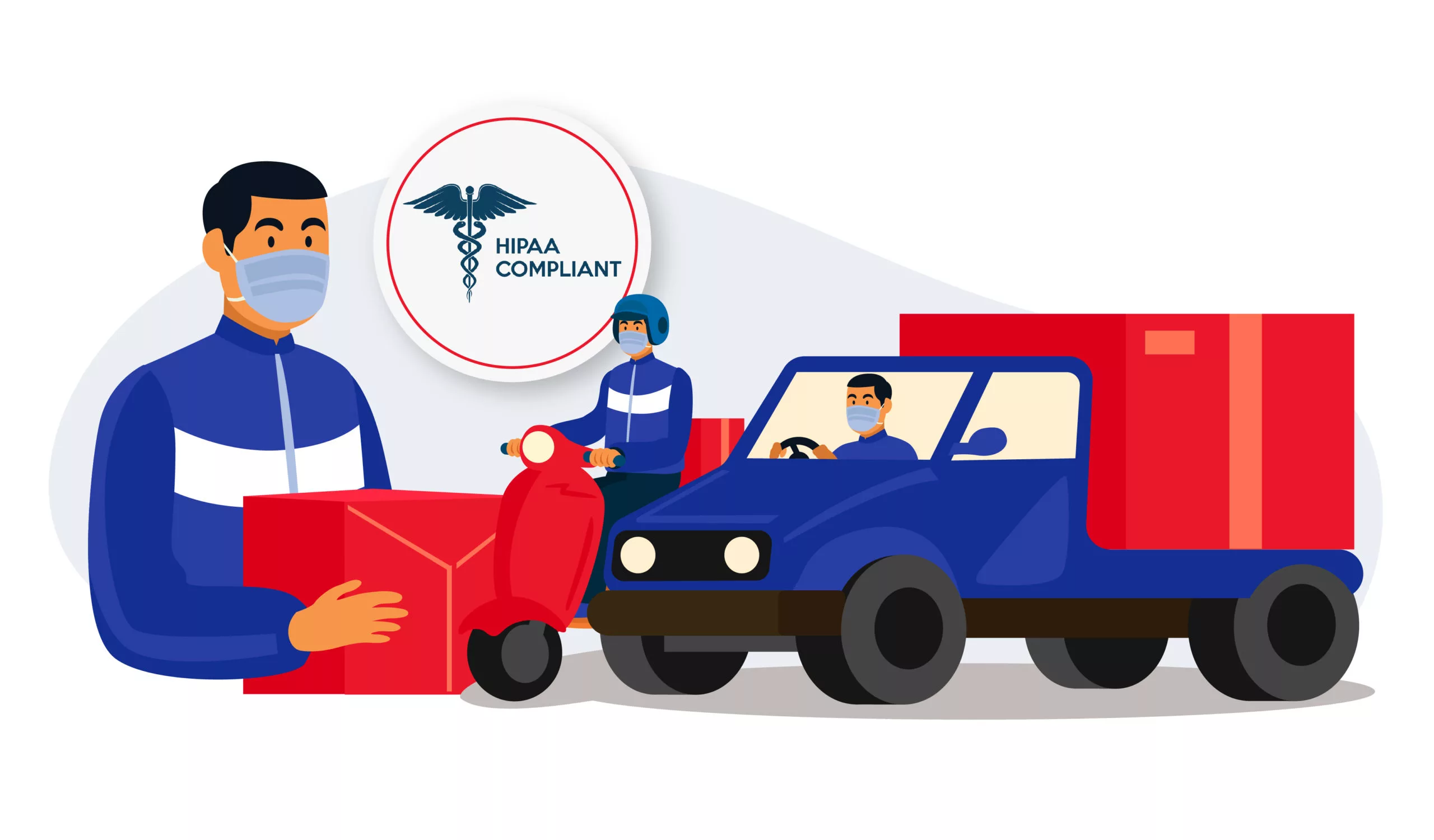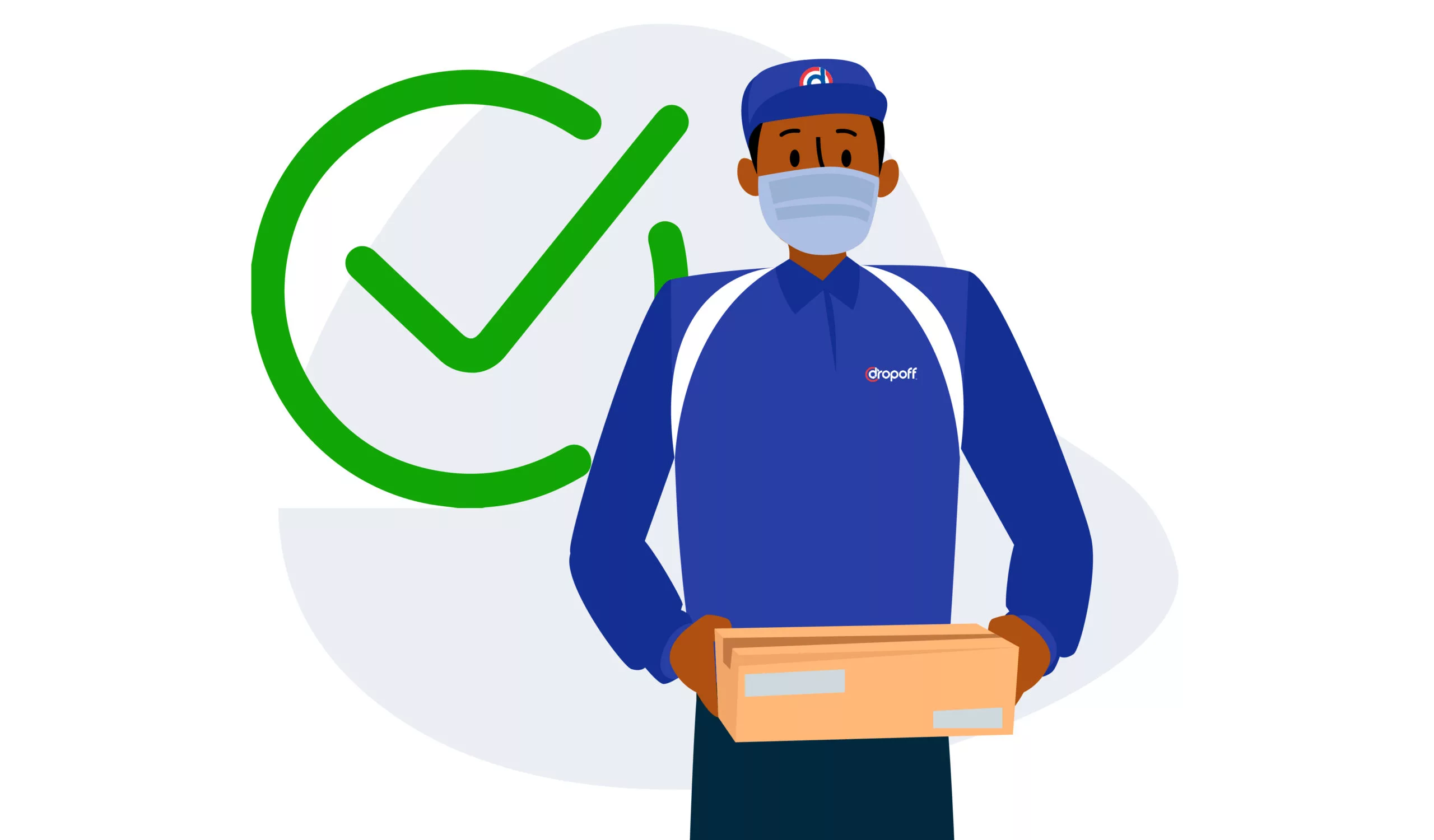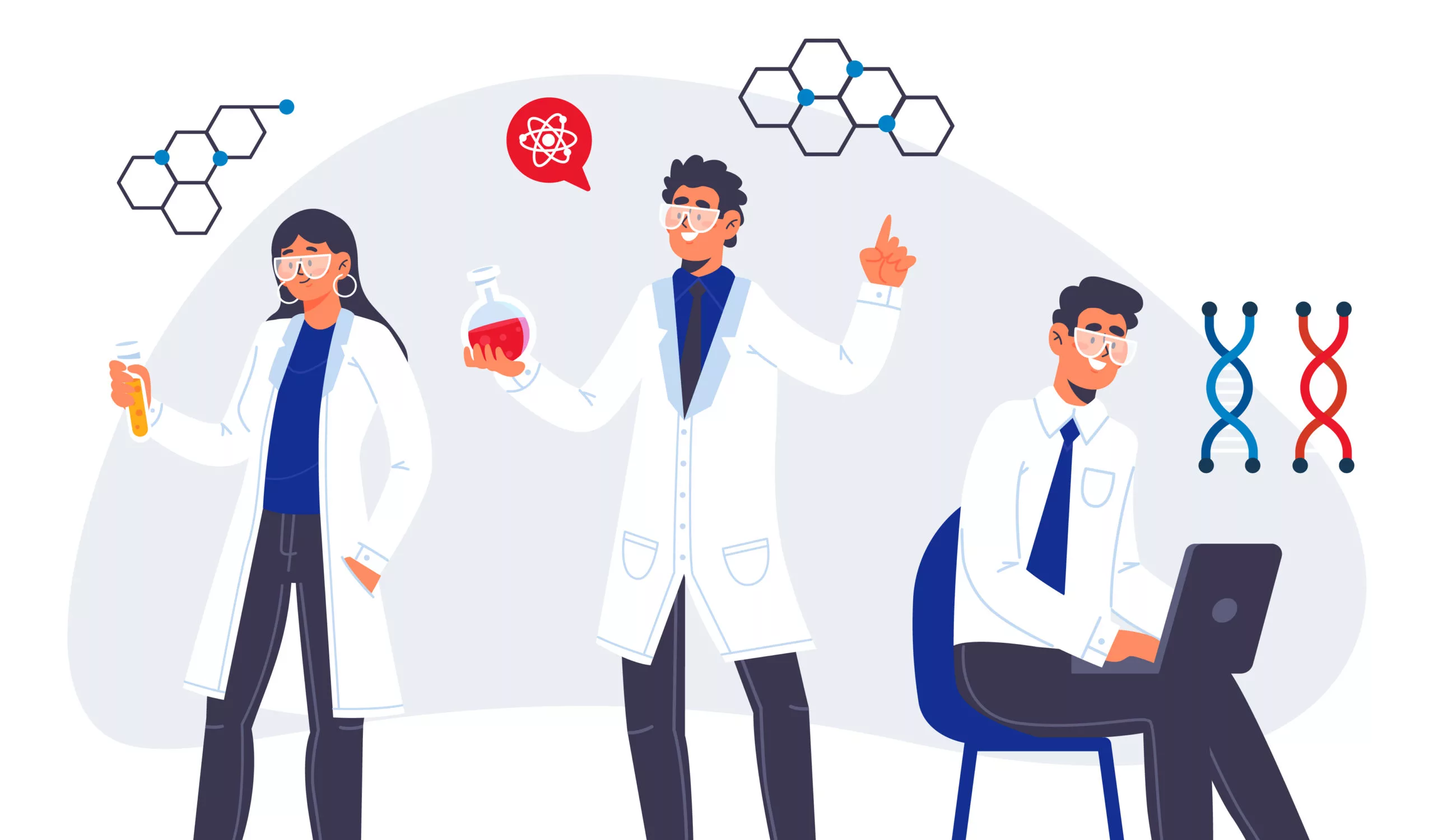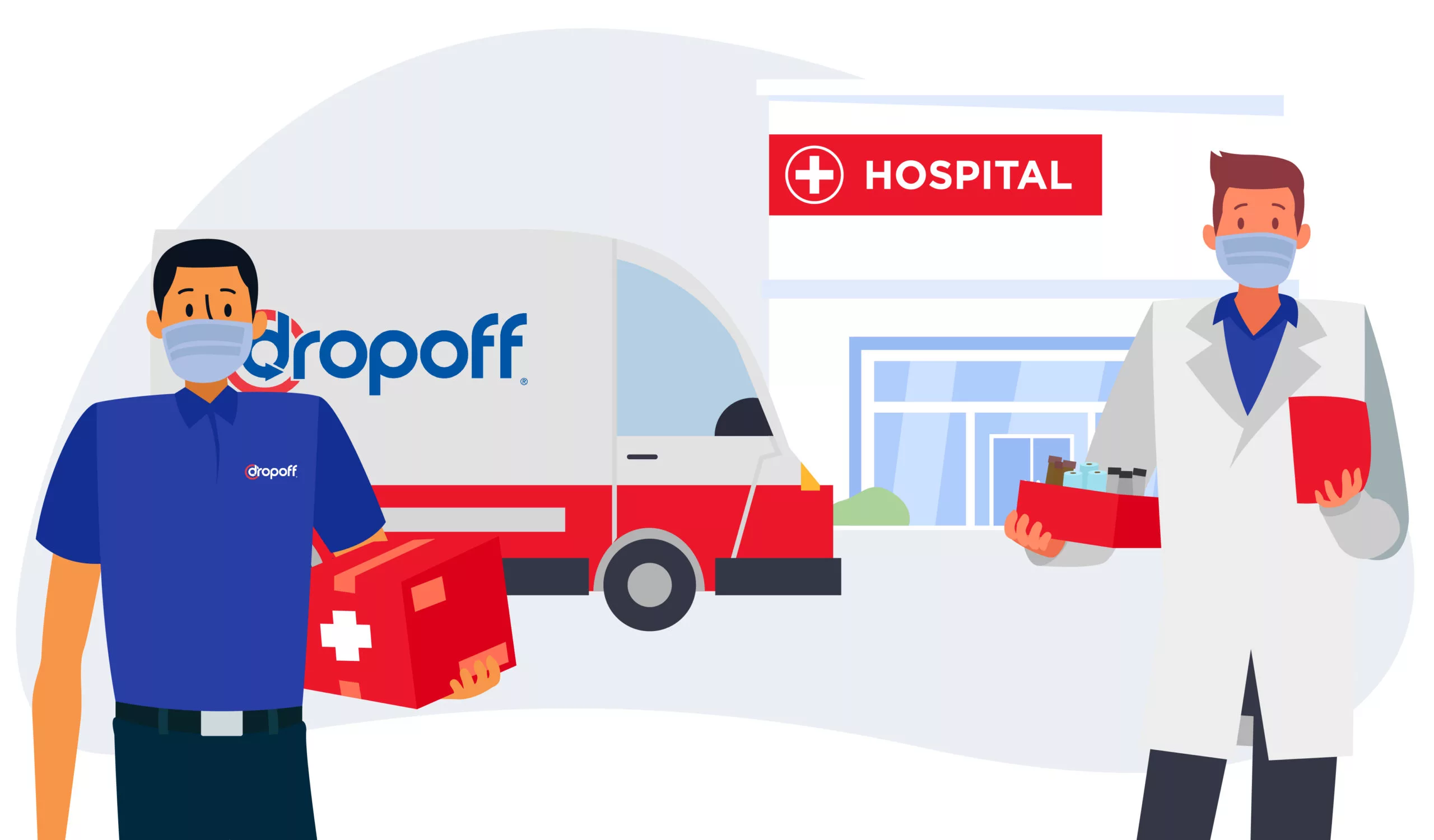Same-Day Delivery in Healthcare Logistics: The Role of Speed in Patient Care
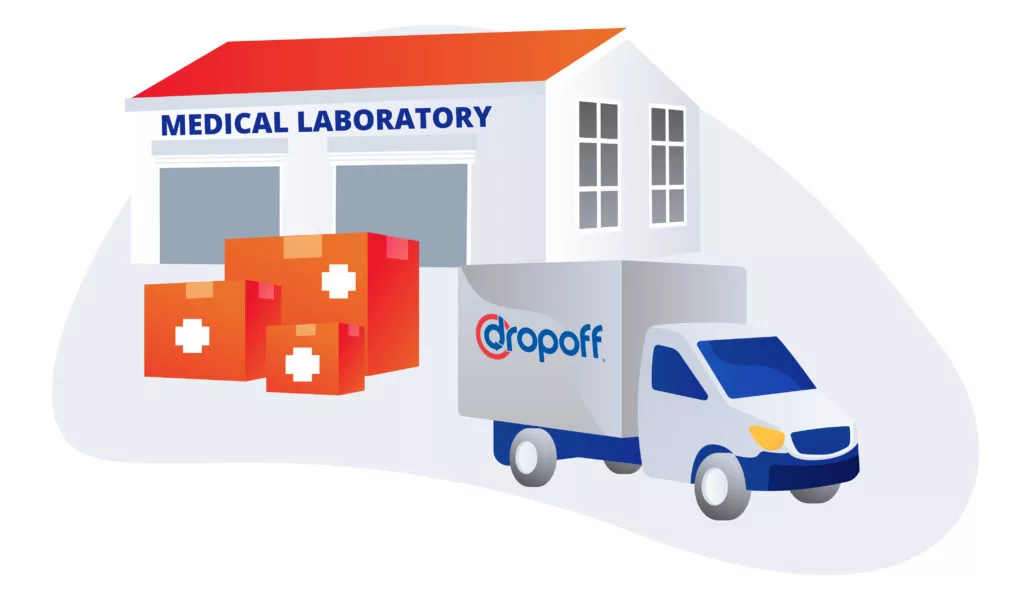
In the ever-changing healthcare landscape, logistics solutions are more important than ever. Healthcare providers are under pressure to provide quality care while also keeping costs down. This has led to an increased demand for same-day delivery in the healthcare industry. In this blog post, we will explore the role of speed in patient care and discuss how same-day delivery can help improve outcomes for patients around the world.
The current state of the global healthcare logistics market shows a leap in revenue of USD 3.3 billion by 2025 from USD 2.2 billion in 2020 — at a CAGR of 7.9% during the forecast period (Markets and Markets, 2020).
What Is Healthcare Logistics?
Healthcare logistics is the process of organizing and managing the healthcare supply chain to ensure that patients receive the treatments they need when they need them.
This process involves the identification, procurement, storage, distribution, and disposal of healthcare resources in an efficient and cost-effective manner. Each of these activities has a direct impact on the quality, cost, and access to healthcare services.
Overall, there has been a growing awareness of the importance of healthcare logistics and its potential to improve the delivery of healthcare services.
Challenges in the Healthcare Logistics Industry
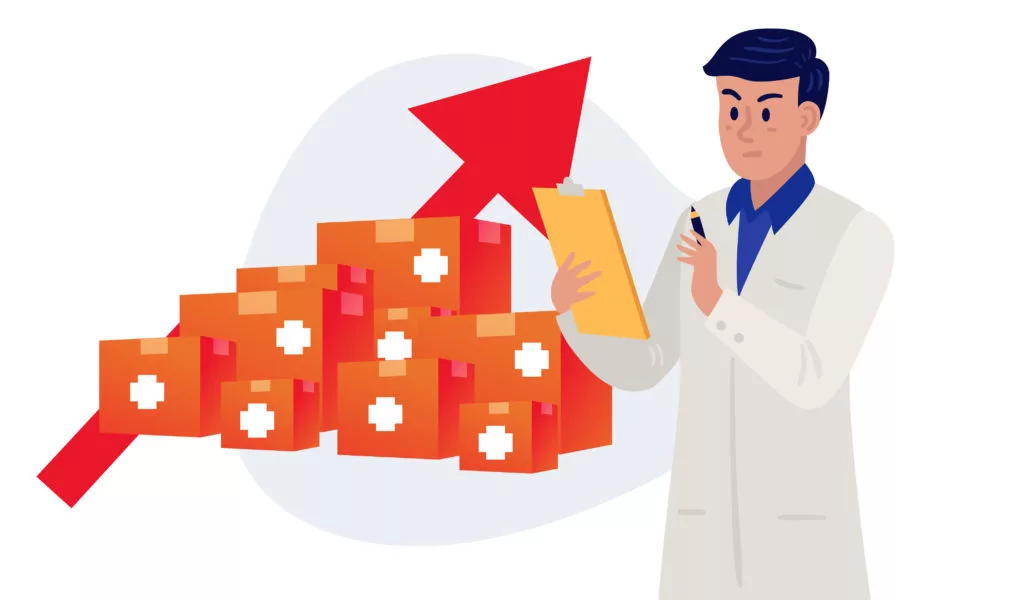
Below are some of the main challenges in the healthcare supply chain logistics industry along with correlating healthcare logistics solutions.
1. Regulatory compliance
Regulatory compliance remains an important focus in the healthcare industry and poses challenges from manufacturing, transportation, distribution, personnel, and IT perspectives.
“Complying with regulations is paramount. The product has to meet our own specs, and also the specs of the ministry of health in the destination country. It’s an everyday concern for us.”
Medicine Manufacturer
These regulations govern everything from the handling of hazardous materials to the secure transport of sensitive patient information. The healthcare logistics industry is constantly evolving to meet these regulations, and compliance is a top priority for companies operating in this space.
In addition, these regulations include requiring medical couriers to become HIPAA compliant.
2. Product security
Physical protection against theft and limited supply chain visibility/too many supply chain hand-offs are the main remaining challenges in this area. Transparency is essential. At any one moment, stakeholders must be aware of where the product is and what conditions it is currently in, whether stored or moving.
This particular challenge calls for a strong need for improvement as important cargo is at stake. For instance, the transportation of blood samples requires specific security measures.
Solution:
In order to ensure the safety of logistics products, manufacturers must implement rigorous security measures. This includes using tamper-proof packaging, tracking devices, and secure transportation methods. In addition, manufacturers must also work closely with healthcare providers to ensure that products are properly stored and handled.
IT investments such as barcoding and serializations, and cooperation with law enforcement should also assist in enhancing product security.
3. Rising supply chain costs
In recent years, the costs of logistics in healthcare have been on the rise. This is due to a number of factors, including the increasing cost of raw materials and the need to transport goods further distances.
In addition, the growth of online shopping has resulted in a surge in demand for delivery services. As a result, logistics healthcare providers are under pressure to find ways to cut costs without compromising the quality of care.
Solution:
One way to do this is to use technology to streamline operations and improve efficiency. For example, logistics healthcare providers can use GPS tracking to optimize routes and minimize empty miles.
In addition, by using data analytics, logistics healthcare providers can identify opportunities for cost savings and process improvements.
4. Product damage or spoilage
This is a particular concern for perishable items, such as medicines and medical supplies. While great care is taken to protect these products during transportation, there is always the risk of damage due to weather conditions, accidental dropping, or tampering.
Once damaged, these products may be unusable and must be disposed of, which can lead to significant financial losses. Spoilage is another major concern, as expired or contaminated products can pose a serious risk to patients.
Solution:
According to a survey done by UPS, partnering with a higher-quality 3PL healthcare logistics, using monitoring temperature devices, and using enhanced thermal packaging, were among the most effective solutions to this particular challenge.
Other Solutions to Challenges in the Healthcare Logistics Industry
1. Using cutting-edge technology
Advanced technologies are disrupting the way logistics companies operate in order to improve the business model for healthcare ecosystems.
A. Maximum Optimisation
Thanks to AI-supported logistics tools developed by companies like Amazon and UPS, logistics optimization has recently become much more efficient. UPS invested in developing its on-road integration and navigation system, which helps its drivers take the most efficient routes during deliveries.
Since delivery points are so important, health institutions and systems can use this technology to get patients, clinicians, and products to the right places at the right time.
B. Artificial Intelligence
AI has already transformed healthcare by improving value-based care delivery. AI can also be used in the supply chain area to better plan for the types of services and products needed to support patient care. Furthermore, it is helpful to predict potential backorders or shortages of products while avoiding overstocking items that may expire soon.
C. Internet of Things (IoT)
Hospitals can use the IoT technology to help them share data about analytics with their system-wide, cloud-based inventory management. This will help connect processes and products with their actual cost. Many experts think that today’s healthcare supply chain isn’t just about manufacturing, transporting, and distributing medical products.
In order to evaluate the value chain properly, we need to look at all the data related to healthcare. This includes both direct and indirect costs. As a result, we need a lot of data that is collected through IoT technology.
2. Partnering with a 3PL healthcare logistics provider

A. Using 3PLs or Multi-Tenant Warehouses to Enhance Efficiency
The warehousing of medical devices has been inefficient and wasteful. Each manufacturer builds its own warehouses and supply chain infrastructure, which usually has excess capacity from the beginning.
Third-party logistics providers can offer their own warehousing solutions or help combine an organization’s warehousing. Basically, this will eliminate any redundant expenses.
B. Technological Access
A 3PL company can provide the technology necessary for automating and streamlining a healthcare organization’s supply chain. These companies are able to share their technology with multiple customers, which benefits you by keeping costs low and handling the investment upfront.
Some products are necessary for the health and lives of patients. That is why healthcare providers often require high fill rates. To make sure that these products are always available, 3PLs can help by creating full visibility and tracking products from one end of the supply chain to the other.
C. Industry and Operational Expertise
When choosing a third-party logistics provider, be sure to partner with one that specializes in healthcare logistics and knows the best practices for that industry. They know the guidelines about when to pick up and deliver orders, how to configure them, what equipment is needed, and when things should be scheduled. Further, they understand the needs of healthcare organizations and how to communicate them to carriers.
A Closer Look at Same-Day Delivery in the Healthcare Supply Chain
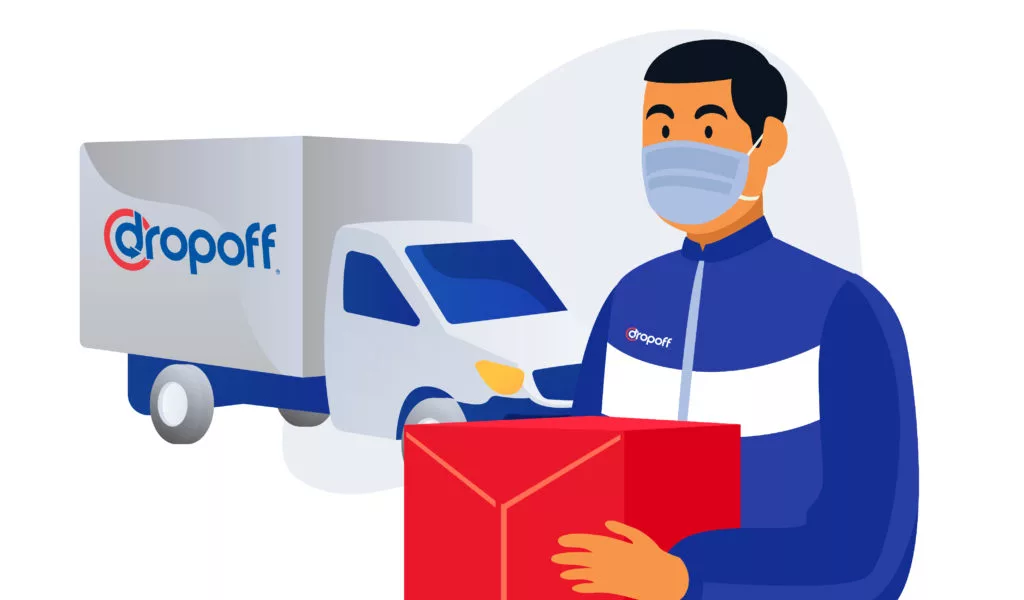
When you are choosing a medical courier service, it is important to think about how quickly they can deliver.
1. To deliver healthcare services more quickly
With new technologies, it is more important than ever to provide quick healthcare solutions to patients. Failure to do this can lead to serious health problems that may be prevented or treated. These goods might even be delivered straight to a patient’s home, avoiding the need for them to go to the doctor’s office.
2. To accommodate busy schedules
Finding the time to manually track delivery is difficult for many medical offices, which are often 24-hour operations. Same-day delivery services use GPS to track their vehicles and provide customers with regular delivery updates. This indicates that medical practices may arrange delivery to match their busy daily schedule.
If you’re wondering how to launch same-day delivery for your pharmacy check out our guide or talk with a logistics expert.
3. For guaranteed delivery
The most significant disadvantage of regular delivery is that a critical medical specimen may be “lost in the mail” or harmed during transportation. The only way to prevent this is to employ a medical courier’s same-day delivery service, which will be handled by a certified expert in a safe manner.
4. For one-on-one assistance
On a one-on-one basis, medical delivery is available the same day. Because couriers focus on individual orders rather than delivering many at once, businesses in the medical sector don’t have to worry about their specimens getting mixed up with other shipments and delivery orders. This helps ensure the most personalized delivery possible.
5. For safe delivery
Healthcare supplies are often quite delicate and must be handled with care, which explains why they’re so expensive. Medical courier services are available same-day to ensure the security and safety of the goods being sent. Materials are transported carefully to ensure they arrive safely at their destination.
6. For specific handling
Healthcare samples, specimens, and other objects frequently need special handling that regular courier service cannot. For example, medical couriers use temperature-controlled trucks to guarantee that goods are in the proper climate throughout the journey. This is particularly true when transporting donated organs, as a patient’s life may be at stake.
Dropoff specializes mainly in medical courier services. With our same-day delivery services, your medical business can rest assured that medical products are being handled responsibly and delivered to end-users safely. Our expertise in the healthcare logistics industry has allowed us to implement cutting-edge technology and innovations to stay competitive.
If you are looking for a medical courier service, Dropoff offers real-time tracking technology and API integration to ensure medicine deliveries are being done securely and in a timely manner.
Benefits of Same-Day Delivery for Healthcare Logistics
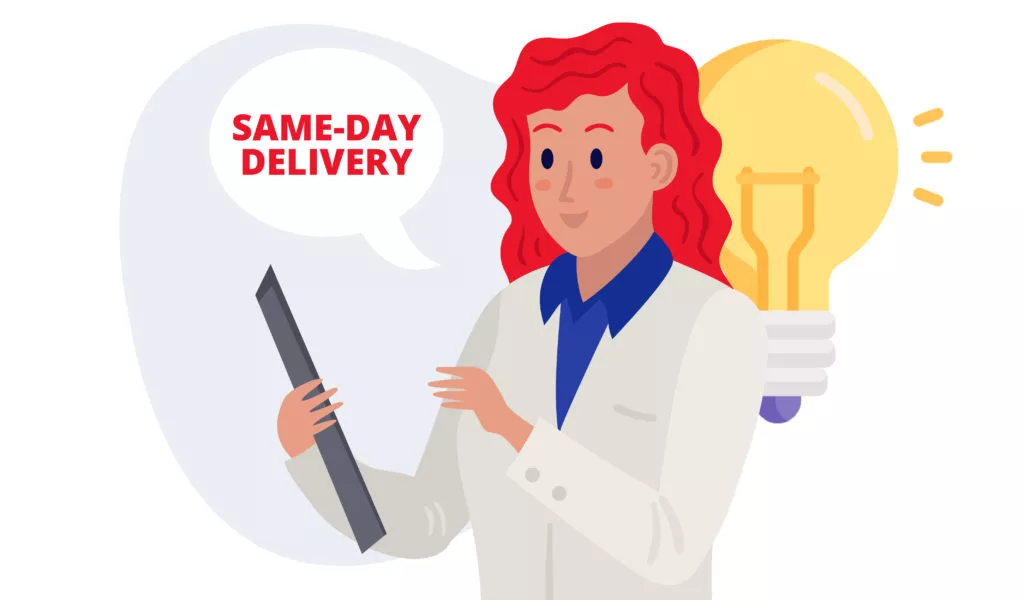
1. Less financial investment for your business
With traditional healthcare logistics, you have to account for employees’ work hours, salaries, and benefits. You also have to factor in the cost of transportation, insurance, and other associated expenses.
However, with same-day delivery, you can eliminate many of these costs. Because your customers will be able to receive their medical materials immediately, you won’t have to pay for employee overtime or invest in additional transportation resources.
2. Adds delivery convenience
By launching same-day delivery services for your medical business, you can give customers a level of healthcare options previously unavailable. For example, if you’re a pharmacy, you can use medical couriers to deliver life-saving medication.
If you’re a medical supply service, your customers can take advantage of what you can offer in saving them time and money.
3. Lower chances of damage
When sending a crucial package like medicines, the issue is fragility. Many materials in labs or medical systems break easily. Test tubes and even culture samples for medical processes need experienced people with their own deliveries.
Hiring a medical courier service can offer you professional handling capabilities. Professionals can handle fragile objects with ease, as they’ll have the right facilities to do so. Having a package spend less time in transit equates to lower chances of damage.
Further, same-day delivery also reduces the amount of time that packages spend sitting in warehouses or storage facilities, which can also lead to damage.
4. Specialised expertise
Medical couriers have the right understanding of proper medical package handling. The products are not only in safe hands, but they’ll reach the destination in great condition. It’s always necessary to make sure the package comes in a state of usability.
From medicine products to even sterilized medical supplies, these will have superior care. Not all parcels are of equal importance. Moreover, some will need healthcare supply chain logistics to make sure they arrive on time and are usable.
Improving Management in Healthcare Logistics
To improve healthcare logistics management, it is important to first understand the various factors that can impact medication delivery. Once these factors have been identified, steps can be taken to mitigate their effects. For example, if a shortage of a certain medication is anticipated, healthcare providers can work with the manufacturer to ensure that patients will still have access to the medication.
Top Healthcare Logistics Companies
ShipMonk – ShipMonk offers clients in the healthcare industry international & domestic logistics across the globe.
Promptus, LLC. – Promptus, LLC offers freight forwarding, customs brokerage & distribution services for the healthcare industry.
DHL – Originally founded in 1969 to deliver documents between San Francisco and Honolulu, the company expanded its services, including medical courier services, throughout the world by the late 1970s.
Dropoff – Dropoff has dominated the same-day delivery area, providing reliability for a variety of industries, including healthcare and business services.
UPS – United Parcel Service (UPS) is a package delivery company specializing in transportation and logistics services — especially in the healthcare industry.
Expeditors – Their core services include supply chain Solutions, transportation, customs and compliance, warehousing, and distribution. The healthcare industry is just one of the many industries they work with.
Bottom Line
Healthcare logistics is a complex and challenging process, but with the right tools and solutions in place, it can be streamlined and more efficient. At Dropoff, we want to help healthcare providers overcome these challenges with our same-day delivery service. We know that when it comes to getting supplies and medications to patients as quickly as possible, every second counts.
If you’re looking for a partner to help improve your healthcare logistics operation, talk with one of our experts today. We’d be happy to discuss how we can help get your supplies where they need to go – fast.

